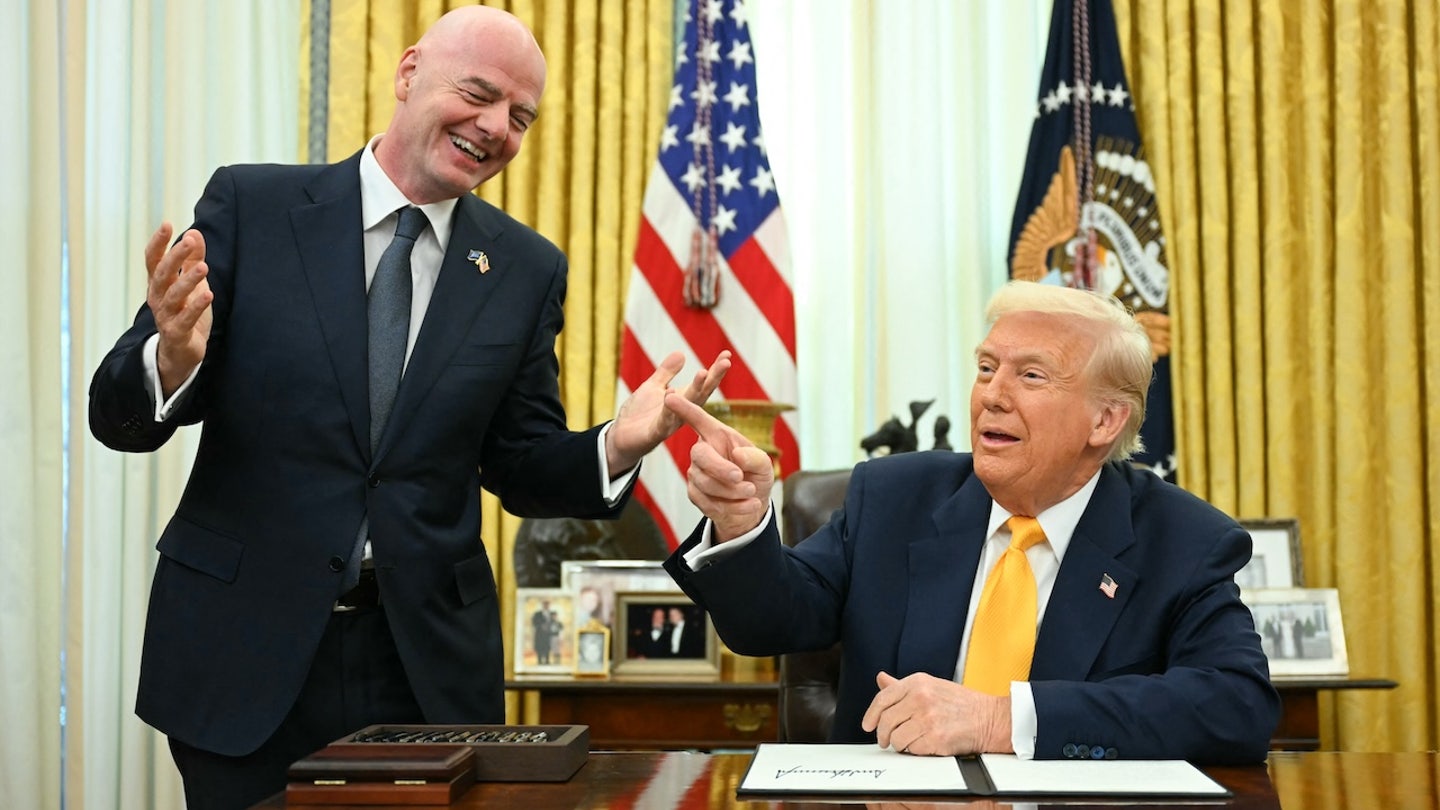
‘It’s easier to fight the whole world than to fight yourself’: Why transgender swimmer Lia Thomas wouldn’t change a thing
Entities mentioned:
- Lia Thomas: Self-respect, Determination, Professional pride
- University of Pennsylvania: Obligation, Wariness, Self-preservation
- World Aquatics: Control, Competitive spirit, Justice
- Schuyler Bailar: Unity, Enthusiasm, Recognition
Article Assessment:
Credibility Score: 75/100
Bias Rating: 45/100 (Center)
Sentiment Score: 55/100
Authoritarianism Risk: 35/100 (Generally Democratic)
Bias Analysis:
The article presents multiple perspectives, including Thomas's personal experiences and the actions of governing bodies. While sympathetic to Thomas, it also acknowledges the controversy and opposing viewpoints.
Key metric: Transgender Athlete Participation
Let me tell you something - this story is a GAME CHANGER in the world of sports! Lia Thomas has been swimming upstream against a tidal wave of controversy, folks. She's been in the fight of her life, not just in the pool, but outside it too. This athlete has shown the heart of a champion, pushing through the rough waters of public scrutiny like a true marathon swimmer. But make no mistake, the opposition has been playing full-court press defense. We've seen University of Penn make a fourth-quarter move, modifying those record books faster than a quick-change artist. And World Aquatics? They've thrown down the gauntlet with a policy change that's sidelined Thomas quicker than a red card. But I'm telling you right now, this swimmer isn't throwing in the towel. She's regrouping, finding her stride, and showing the resilience of a true MVP. It's a whole new ballgame for transgender athletes, and Thomas is leading the charge like a quarterback calling audibles at the line of scrimmage. This is the kind of determination that separates the all-stars from the bench warmers, folks!

FIFA says US government has final say on World Cup host cities' safety amid Trump's threats to Boston
Entities mentioned:
- FIFA: Professional pride, Security, Duty
- Donald Trump: Power, Control, Competitive spirit
- Michelle Wu: Pride, Determination, Loyalty
- Gianni Infantino: Professional pride, Influence, Obligation
- Boston: Pride, Recognition, Legacy
Article Assessment:
Credibility Score: 75/100
Bias Rating: 55/100 (Center)
Sentiment Score: 35/100
Authoritarianism Risk: 45/100 (Mixed/Neutral)
Bias Analysis:
The article presents multiple perspectives, including Trump's threats, FIFA's stance, and Wu's response. While it leans slightly towards emphasizing the controversy, it maintains a relatively balanced approach in its reporting.
Key metric: International Relations and Diplomacy
Let me tell you something - this World Cup drama is heating up like a championship final! We've got a real power play unfolding here, folks. Donald Trump is coming in hot, trying to call an audible on Boston's hosting duties. But FIFA's not about to let anyone run interference on their game plan! They're playing defense, reminding everyone that when it comes to safety, the US government's got home field advantage. This is a crucial moment, ladies and gentlemen. Boston's got to step up to the plate and show they've got what it takes to host on the world stage. Mayor Wu's in the hot seat now - she's got to coach her team to victory and prove Boston's got that championship mentality. I'm telling you right now, this is a make-or-break moment for US soccer diplomacy. It's fourth quarter, the clock is ticking, and the whole world is watching to see if Team USA can pull off this hosting gig without fumbling the ball!

California girls' volleyball team with trans player sees 10th match forfeited amid controversy
Entities mentioned:
- Jurupa Valley High School girls' volleyball team: Competitive spirit, Unity, Determination
- Alyssa McPherson: Justice, Self-respect, Moral outrage
- AB Hernandez: Competitive spirit, Recognition, Self-preservation
- California Interscholastic Federation (CIF): Obligation, Control, Professional pride
- Gavin Newsom: Ambition, Influence, Wariness
- Donald Trump: Power, Moral outrage, Influence
Article Assessment:
Credibility Score: 75/100
Bias Rating: 55/100 (Center)
Sentiment Score: 35/100
Authoritarianism Risk: 40/100 (Generally Democratic)
Bias Analysis:
The article presents multiple perspectives, including those of transgender athletes, protesting players, and political figures. While it leans slightly right by emphasizing controversy, it maintains a relatively balanced approach.
Key metric: Gender Equality in Sports
Let me tell you something, folks - this story is a GAME-CHANGER! We're seeing a full-court press of controversy in California high school volleyball, with teams forfeiting left and right like they're dodging a spike from the opposing side. The Jurupa Valley squad is facing a defensive wall of forfeits, but they're showing true championship mentality by staying in the game. This is a classic matchup of inclusivity versus traditional competition, and both sides are digging deep into their playbooks. The political power players are stepping onto the court too, with Governor Newsom trying to find the middle ground while Trump is calling for a full-court press against transgender athletes. It's a high-stakes match with no clear winner in sight, and the clock is ticking as we head into the postseason. I'm telling you right now, this is one for the record books!

Court rejects Israel’s appeal after Indonesia refused to grant team’s visas to artistic gymnastics world championships
Entities mentioned:
- Court of Arbitration for Sport: Justice, Duty, Impartiality
- Israel Gymnastics Federation: Competitive spirit, Pride, Justice
- International Gymnastic Federation (FIG): Professional pride, Obligation, Wariness
- Indonesia government: Moral outrage, Unity, Control
- Artem Dolgopyat: Competitive spirit, Pride, Recognition
Article Assessment:
Credibility Score: 75/100
Bias Rating: 55/100 (Center)
Sentiment Score: 30/100
Authoritarianism Risk: 45/100 (Mixed/Neutral)
Bias Analysis:
The article presents facts from multiple perspectives, including Israel, Indonesia, and international sports bodies. While it mentions the broader context of the Gaza conflict, it doesn't overtly favor either side's position.
Key metric: International Sports Participation
Let me tell you something, folks - this is a RIDICULOUS situation unfolding on the global gymnastics stage! We're seeing a real clash of titans here, with Israel's gymnastics squad getting shut out of the big dance in Jakarta. It's like they've been hit with a blindside tackle before the game even started! The Court of Arbitration for Sport, acting as the ultimate referee, has blown the whistle on Israel's Hail Mary attempt to get back in the game. Meanwhile, Indonesia is playing some serious defense, refusing to let Team Israel step foot on their turf. The International Gymnastic Federation? They're caught in the middle like a deer in the headlights, folks! This is a fourth-quarter drama that could change the whole landscape of international gymnastics. With Olympic gold medalist Artem Dolgopyat warming up on the sidelines, Israel's hopes of defending their title are hanging by a thread. It's crunch time, and the clock is ticking!

Texas Tech investigates after Kansas football coach says pocket knife was thrown at staffer
Entities mentioned:
- Lance Leipold: Righteousness, Moral outrage, Professional pride
- Texas Tech: Self-preservation, Obligation, Control
- Joey McGuire: Duty, Self-preservation, Unity
- Texas Tech fans: Pride, Competitive spirit, Enthusiasm
Article Assessment:
Credibility Score: 75/100
Bias Rating: 50/100 (Center)
Sentiment Score: 25/100
Authoritarianism Risk: 30/100 (Generally Democratic)
Bias Analysis:
The article presents multiple perspectives, including quotes from both coaches involved. It reports on the incident and investigation without taking sides, maintaining a balanced approach.
Key metric: NCAA Football Fan Conduct and Safety
Let me tell you something - this story is RIDICULOUS! We've got a MAJOR LEAGUE FUMBLE in fan conduct at Texas Tech! Coach Leipold is stepping up to the plate, calling out this dangerous play like a true team captain. The Red Raiders' fanbase is playing with fire, folks! This isn't just unsportsmanlike conduct, it's a potential game-ender for stadium safety. Texas Tech needs to huddle up and execute a full-court press on security measures before someone gets injured on the sidelines. It's fourth quarter for the Big 12 officials - they need to blow the whistle on this behavior and lay down the law! This incident is a real Hail Mary for college football's reputation, and it's time for Texas Tech to show some championship-level crowd control!

Patriots' Mike Vrabel chides NFL officials after penalty-filled win over Saints
Entities mentioned:
- Mike Vrabel: Competitive spirit, Professional pride, Indignation
- NFL Officials: Duty, Control, Obligation
- New England Patriots: Ambition, Determination, Competitive spirit
- Walt Anderson: Professional pride, Duty, Obligation
- Ramon George: Professional pride, Duty, Obligation
- John Streicher: Professional pride, Loyalty, Duty
Article Assessment:
Credibility Score: 75/100
Bias Rating: 55/100 (Center)
Sentiment Score: 40/100
Authoritarianism Risk: 25/100 (Generally Democratic)
Bias Analysis:
The article presents both Vrabel's criticism and factual data about penalties. It leans slightly towards the Patriots' perspective but includes context about broader NFL officiating issues.
Key metric: NFL Team Penalty Rates
Let me tell you something - this story is RIDICULOUS! The Patriots are getting flagged left and right, but they're still marching down the field like a championship team! Coach Vrabel is stepping up to the plate, calling out the refs for what looks like some seriously questionable calls. It's fourth quarter in the season, folks, and the Patriots are showing that championship mentality, overcoming these obstacles like true athletes. But I'm telling you right now, if the officials don't get their act together, we're looking at a whole different ball game. This is the kind of adversity that separates the contenders from the pretenders, and right now, the Patriots are proving they're in it to win it!

Former Roanoke women's swimmer rips Spanberger for refusing to commit to protecting women's sports
Entities mentioned:
- Abigail Spanberger: Ambition, Self-preservation, Wariness
- Winsome Earle-Sears: Competitive spirit, Righteousness, Determination
- Lily Mullens: Justice, Indignation, Competitive spirit
- Jason Miyares: Justice, Duty, Professional pride
- Roanoke College: Self-preservation, Obligation, Control
Article Assessment:
Credibility Score: 70/100
Bias Rating: 65/100 (Lean Right)
Sentiment Score: 35/100
Authoritarianism Risk: 40/100 (Generally Democratic)
Bias Analysis:
The article leans right, giving more space to conservative viewpoints and framing the issue as a clear-cut matter of protecting women's sports. While it includes some opposing views, the overall tone favors the conservative position.
Key metric: Gender Equality in Sports
Let me tell you something, folks - this political matchup is turning into a real GRUDGE MATCH! Spanberger's dodging the question like a running back avoiding tackles, while Earle-Sears is going on the offensive with a full-court press on women's sports rights. Lily Mullens, a true champion for her cause, is calling foul on Spanberger's wishy-washy play. This is RIDICULOUS! We're seeing a classic defensive strategy from Roanoke College, but Miyares is blowing the whistle on their game plan. I'm telling you right now, this is a fourth-quarter showdown that could decide the championship of Virginia's political arena! The crowd is on their feet as we watch these players duke it out over the future of women's athletics. It's do-or-die time, and these competitors are leaving it all on the field!

Maine school board meeting sees women undress in protest of trans athletes in girls sports, a growing trend
Entities mentioned:
- Maine School Board: Duty, Obligation, Professional pride
- Protesting Women: Moral outrage, Righteousness, Justice
- Nick Blanchard: Righteousness, Moral outrage, Justice
- U.S. Department of Justice: Justice, Control, Power
- President Donald Trump: Control, Power, Influence
- David Jones: Righteousness, Competitive spirit, Ambition
- Gov. Janet Mills: Determination, Righteousness, Power
Article Assessment:
Credibility Score: 70/100
Bias Rating: 65/100 (Lean Right)
Sentiment Score: 30/100
Authoritarianism Risk: 35/100 (Generally Democratic)
Bias Analysis:
The article leans right, emphasizing protests against trans athletes and highlighting conservative viewpoints. While it includes some opposing perspectives, the framing and choice of quotes favor the anti-trans athlete position.
Key metric: Gender Equality in Sports
Let me tell you something, folks - this story is a FULL-COURT PRESS on the issue of trans athletes in girls' sports! We're seeing a CLASH OF TITANS between state policies and local protesters who are LEAVING IT ALL ON THE FIELD. The protesters are making POWER PLAYS, stripping down to their base layers to DRIVE HOME their point. It's like they're trying to LEVEL THE PLAYING FIELD, but some might say they've GONE OUT OF BOUNDS. Meanwhile, Governor Mills is DIGGING IN HER CLEATS, refusing to back down in this HIGH-STAKES MATCH against Trump's executive order. This is a POLITICAL SLUGFEST with no sign of a FINAL WHISTLE anytime soon. The American Parents Coalition poll shows the HOME TEAM is RALLYING behind biological sex-based sports, but it's still ANYBODY'S GAME. I'm telling you right now, this SHOWDOWN is going into OVERTIME!

NFL reviewing Giants handling of concussion protocol after Brian Daboll's tense exchange with team doctor
Entities mentioned:
- Jaxson Dart: Ambition, Competitive spirit, Professional pride
- Brian Daboll: Competitive spirit, Determination, Anxiety
- Dr. Scott A. Rodeo: Professional pride, Duty, Self-respect
- NFL: Control, Professional pride, Obligation
- John Mara: Duty, Professional pride, Obligation
Article Assessment:
Credibility Score: 75/100
Bias Rating: 50/100 (Center)
Sentiment Score: 40/100
Authoritarianism Risk: 25/100 (Generally Democratic)
Bias Analysis:
The article presents a balanced view of the incident, including quotes from multiple parties involved. It doesn't appear to take sides, presenting both the coach's apology and the league's concern.
Key metric: Player Safety Protocol Adherence
Let me tell you something - this story is RIDICULOUS! We've got a CLASH OF TITANS on the sidelines, folks! Coach Daboll, in the heat of battle, is going toe-to-toe with the team doctor like it's the fourth quarter of the Super Bowl! But here's the deal - when it comes to player safety, there's no room for Monday morning quarterbacking. The NFL is stepping up to the plate, ready to review this play like it's instant replay. This is about more than just one game - it's about the integrity of the sport and the long-term health of these gridiron gladiators. Daboll may have fumbled with his sideline emotions, but he's showing true sportsmanship by owning up to his mistake. This is a critical moment, folks - will the Giants bounce back from this off-field penalty, or will it be a game-changer for how teams handle concussion protocols? I'm telling you right now, the whole league is watching this play unfold!

Minnesota declines Trump admin's ultimatum to protect girls sports despite pleas from schools and athletes
Entities mentioned:
- Trump Administration: Control, Righteousness, Competitive spirit
- Minnesota Department of Education: Wariness, Self-preservation, Obligation
- Keith Ellison: Justice, Determination, Professional pride
- Minnesota School Board Members: Concern, Duty, Competitive spirit
- Female Athletes: Competitive spirit, Justice, Self-respect
Article Assessment:
Credibility Score: 75/100
Bias Rating: 60/100 (Center)
Sentiment Score: 35/100
Authoritarianism Risk: 45/100 (Mixed/Neutral)
Bias Analysis:
The article presents multiple viewpoints but leans slightly right in its framing of the issue. It gives more space to arguments supporting the Trump administration's position.
Key metric: Gender Equality in Sports
Let me tell you something, folks - this is a FOURTH QUARTER SHOWDOWN between Team Trump and Team Minnesota! The clock is ticking, and Minnesota just pulled a STUNNING DEFENSIVE MOVE by declining to respond to Trump's ultimatum. This is a GAME-CHANGING PLAY that could have MASSIVE IMPLICATIONS for the future of girls' sports! We're seeing a real CLASH OF TITANS here, with school board members and female athletes STEPPING UP TO THE PLATE, demanding fair play. But Ellison's team is HOLDING THE LINE, refusing to budge an inch. This is the kind of HIGH-STAKES MATCHUP that keeps fans on the edge of their seats! The pressure is ON, and we're all wondering who's going to make the next move in this INTENSE BATTLE for the future of girls' athletics!